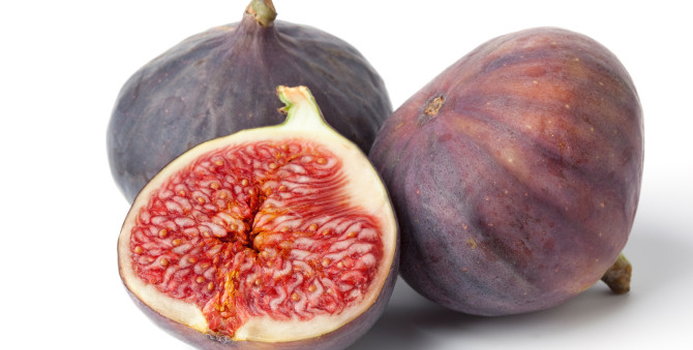Figs are a delicious fruit, whether fresh or dried, and have many health benefits as well. Figs don't transport well, so they are often extremely fresh and eaten close to their place of origin.
What Is a Fig?
A fig is the fruit of a species of ficus tree. There are over 600 different types of figs, bred for different colors, flavors and uses. Figs may have been one of the first plants to be cultivated and were raised in orchards in the middle east. They are still a traditional part of meals around that area.
Figs can be eaten whole and raw, including the seeds and the skin, and have a sweet, mild flavor. Some cultivars have a brilliant coloring and are used decoratively in desserts. They are also baked, or stored as jam or in vinegar. Most commonly, figs are dried and then eaten as a sweet, or rehydrated for use in cooking.
The Health Benefits of Figs
Figs are a uniquely nutritious fruit, as they have the highest amount of calcium of any fruit, and 100g (3.5 oz) of dried figs contains 16% of the daily recommended amount. Figs are also an excellent source of dietary fiber. Fruit fiber has been shown to significantly lower the risk of breast cancer in postmenopausal women. It is also very filling and can help to take the edge off appetite.
Figs are also a good source of iron, magnesium, potassium, B vitamins, as well as vitamin K. Figs contain different types of antioxidants and have been shown in studies to raise antioxidant activity. Antioxidants mop up free radicals, which may contribute to the development of cancer, heart disease and the visible signs of aging by damaging DNA and other body systems. The riper the fig, the more antioxidants it contains.
Fig leaves are also surprisingly healthy. Several cultures use the leaves in cooking, particularly to wrap meats and fish. Studies have shown that an extract of fig leaves will increase insulin sensitivity, and may be useful for preventing diabetes. Studies on animals have also shown fig leaves to reduce the likelihood of heart disease and possibly kill cancer cells as well.
Cautions About Figs
Figs are a very safe food, although they do have a slight laxative effect and so should not be consumed to excess, particularly when dried. When picking figs, a small amount of fig latex may be produced from the stem. Some people have an allergy to this white fluid and should wear gloves when picking figs. This fluid is not present in the fruit itself, but only the stem.
Figs also contain oxalates, a chemical which can cause kidney and gall bladder stones when it becomes too concentrated in the body. Figs do not contain a large amount, although people with existing kidney problems should consume them in moderation.
Figs are a delicious and nutritious fruit with many beneficial qualities. They are high in fiber, calcium and antioxidants, and when eaten in moderation can be a valuable addition to a balanced diet.



